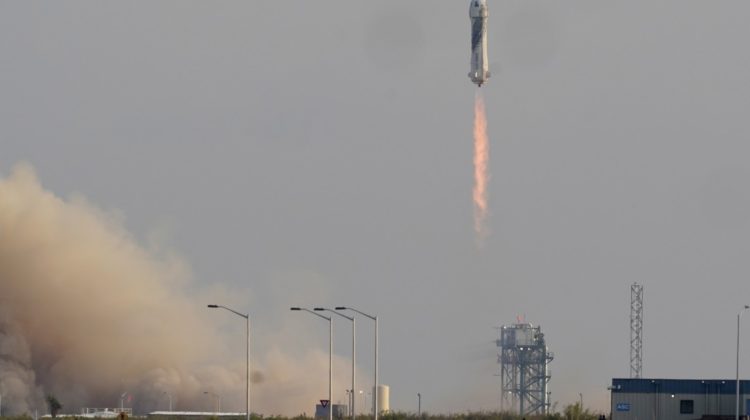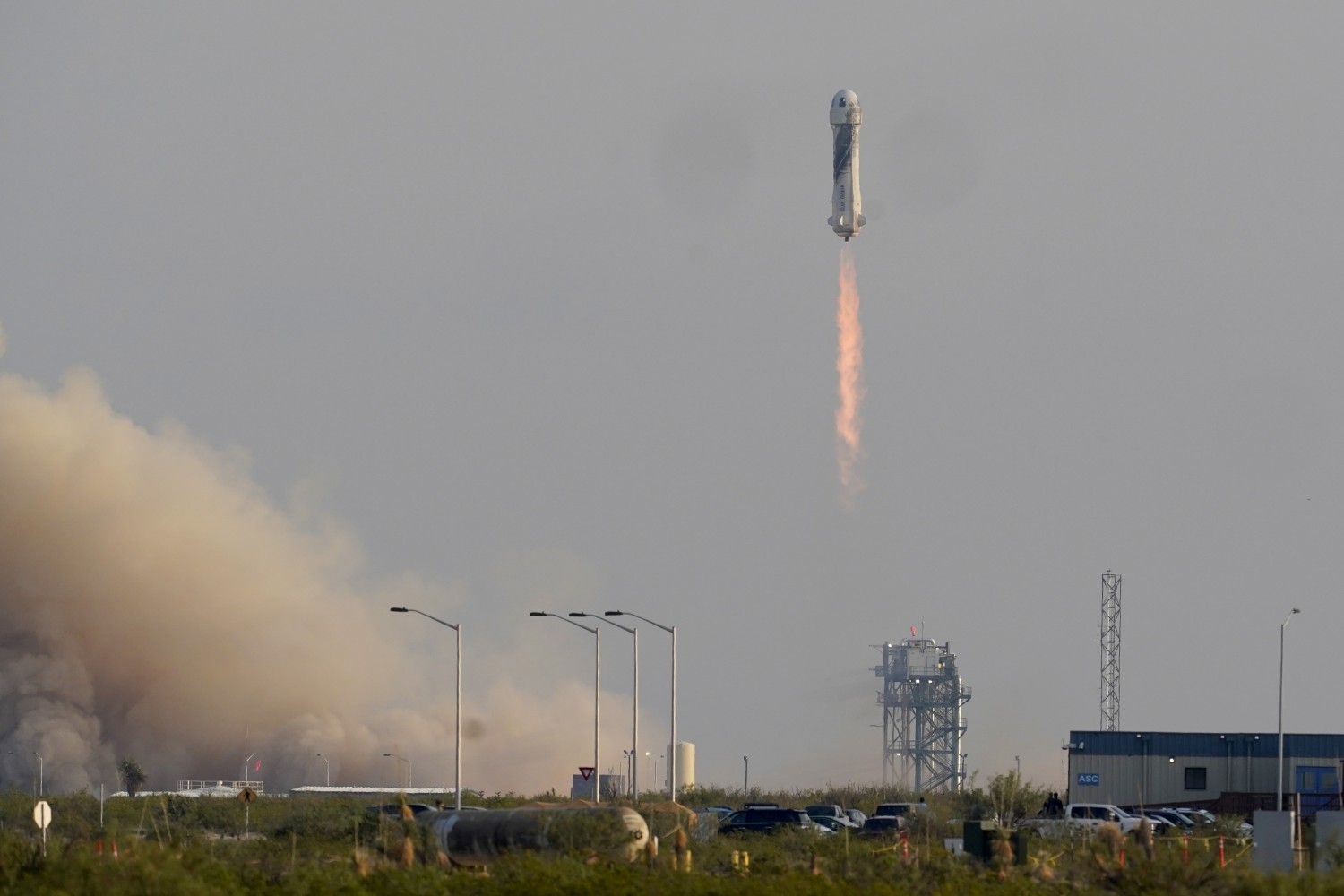

Billionaire Jeff Bezos has long talked about his dream of millions of people living and working in space.
On Tuesday, Bezos himself joined the ranks of those who have gone to space — for a few minutes, at least.
The billionaire Amazon founder embarked on a journey to suborbital space along with three others aboard his company Blue Origin’s New Shepard rocket and capsule system. The launch took place shortly after 6 a.m. Pacific time from the company’s launch pad about 30 minutes north of Van Horn, Texas.
It marks the first time Blue Origin has launched humans after a series of uncrewed flight tests.
The capsule with Bezos, his brother Mark, aviation pioneer Wally Funk and Blue Origin’s first commercial customer, Oliver Daemen, aboard landed back on Earth about 10 minutes after liftoff, buoyed by a trio of parachutes. The craft’s autonomous flight systems were in control of the journey.
Bezos gave a thumbs up from his seat in the capsule shortly after landing. The crew emerged from the craft minutes after landing and was greeted by hugs from loved ones, as well as a camera crew. To celebrate, they popped bottles of Champagne.
Back at the press site, Blue Origin employees cried and cheered as the capsule’s parachutes deployed and also when they saw Funk — now the oldest person to go to space — emerge from the capsule, arms outstretched in triumph. Funk was part of the so-called Mercury 13 — a group of U.S. female pilots who underwent the same physiological and psychological screening tests as the Project Mercury astronauts but never went to space.
The seeming arrival of the era of suborbital space tourism after years of hype has fueled public debate around the increasing commercialization of space and the role that billionaires play in the industry.
A little over a week ago, British billionaire Richard Branson boarded a spaceplane built by his Virgin Galactic firm along with five others and flew to the edge of space and back, making it there ahead of Bezos, who had announced his plans earlier. Virgin Galactic plans to complete two more test flights before it begins flying paying customers to space next year.
Blue Origin also plans to continue flying customers to space, though it has not announced a ticket price or additional details about commercial operations. During a livestream of the launch, Ariane Cornell, Blue Origin’s director of astronaut sales, repeatedly encouraged interested customers to email the company.
Proceeds from the auction for a spot on Tuesday’s launch went to the Club for the Future foundation, which was founded by Blue Origin and is aimed at promoting science, technology, engineering and math careers. From those proceeds, 19 nonprofit organizations were selected to receive $1-million grants.
The auction ended with a winning bid of $28 million, but the ticket holder deferred the trip, citing scheduling conflicts, according to Blue Origin. They will fly on a future mission.
Daemen, 18, was part of the auction process and was slated for the company’s second crewed flight, Cornell said earlier this week. After the auction winner’s scheduling conflict, the company reached out to Daemen to see if he was available to move up to an earlier flight.
The company did not release how much Daemen, the son of a Dutch private equity executive and now the youngest person to go to space, paid for his spot, or the name of the original auction winner.
Cornell has said there is a robust pipeline of other interested customers.
Before launch, about 100 reporters were gathered at the press site. Inns and hotels in the small town of Van Horn were sold out.
Mendez reported from Van Horn and Masunaga from Los Angeles.
